

V S Karunya Sri
Botkube is the Future of Kubernetes Troubleshooting
In the contemporary landscape, all solutions are implemented in the cloud and utilized by teams globally. Kubernetes, a leading orchestration tool for application management, has undergone significant evolution.
Over the years, numerous tools tailored to specific domains have emerged to enhance support for Kubernetes clusters. An example in the observability domain is Botkube, an innovative tool designed for collaborative Kubernetes troubleshooting and monitoring.
Botkube is an open-source chatbot that helps you monitor, debug critical deployments and run checks on Kubernetes cluster and provides real-time feedback and alerts through a chat interface.
Moreover, Botkube can automate the deployment of Kubernetes applications and services, allowing teams to stay up-to-date on the status of clusters and troubleshoot any problems.
By empowering DevOps teams, Botkube streamlines workflows, allowing developers to troubleshoot applications without requiring extensive Kubernetes expertise. This automation dramatically enhances team reliability in navigating events within Kubernetes environments by delivering timely and context-enhanced notifications.
Features of Botkube
- Real-time capture of k8s events in various communication channels like Slack, Microsoft Teams, Discord, and Mattermost
- Run checks by setting up alerts and notifications on resources to ensure they are healthy
- Streamline admin tasks, which empowers to take action effortlessly and swiftly
- Ability to perform actions in the cluster via a communication channel, eliminating the need to log into the system
Below are the use cases that can be customized to meet the specific requirements of the application.
Use Case 1: Kubernetes (K8s) Cluster Event Notifications
The Botkube agent captures actions, such as creating, deleting, updating, or encountering errors with k8s resources, and communicates them to a designated channel.
Select the Kubernetes source in the Botkube and configure the events section as shown below:
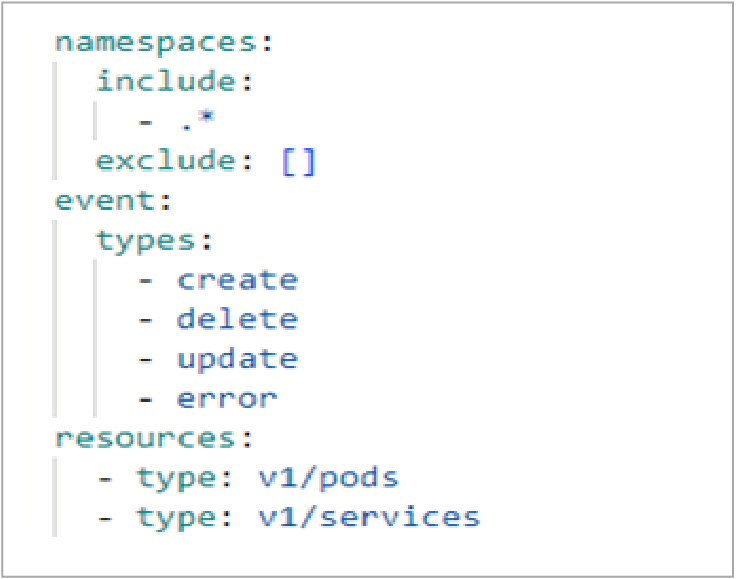
Any action performed in k8s on any resources can be captured in slack with the above configuration.
Below depicts the deletion of a sample service in k8s cluster.

We can also capture events related only to resources within a particular namespace. To achieve this, you can incorporate an additional k8s source into Botkube, specifically designed to capture events within the required namespace.
Furthermore, you have the option to configure the system so that one of the Slack channels exclusively receives notifications pertaining to activities within this specific namespace. With the modifications below in the k8s source, we can get only events specific to default namespace in the channel named flask.
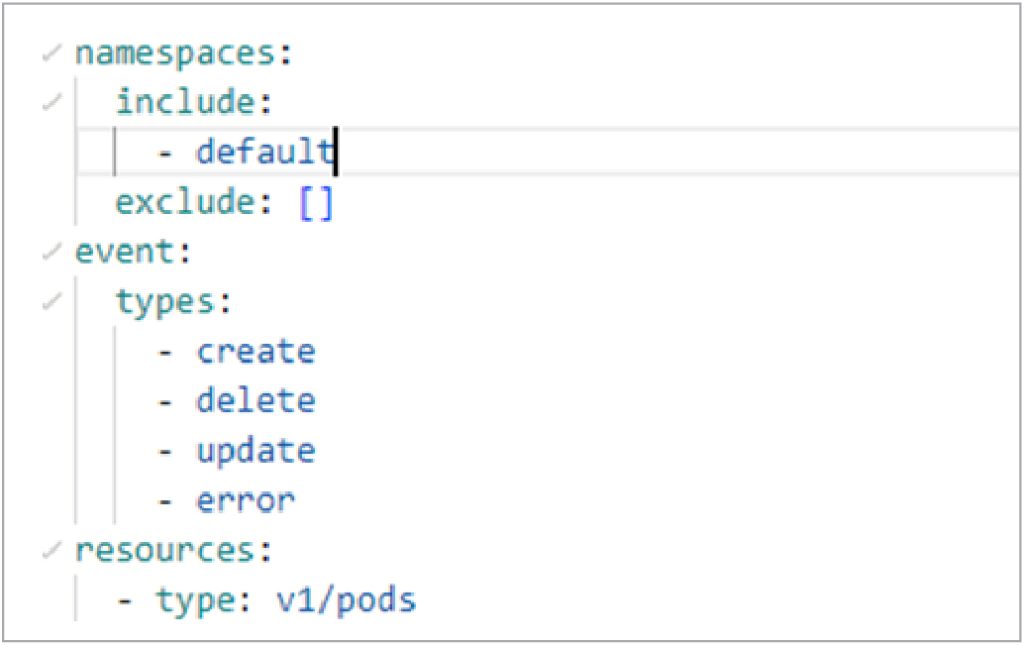
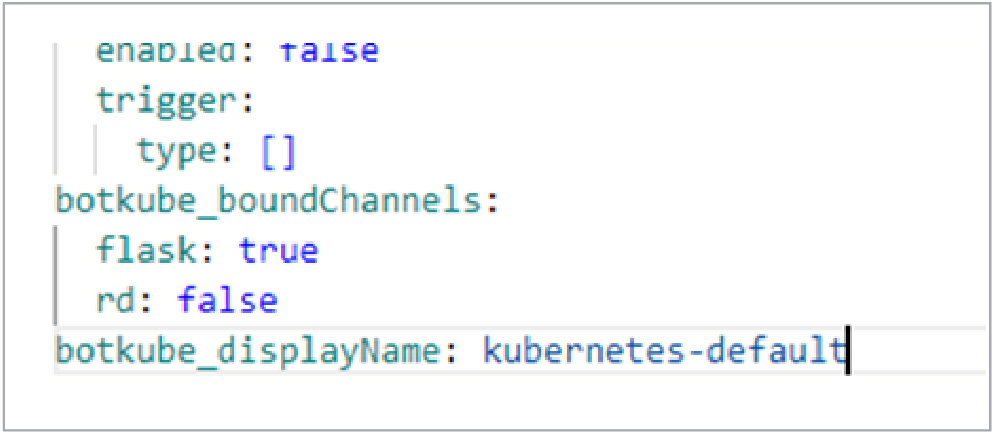
Use Case 2: CRUD via Communication Channel
By default, kubectl plugin allows read-only commands.
During installation Botkube creates a Clusterrole and Clusterrolebinding in k8s cluster to perform the default operations.
Permissions can be modified in the following way to allow create, delete, edit operations.
1. Change the default permissions and add the channel in which these operations can be performed under the group section
2. Create Clusterrole and Clusterrolebinding resources in the k8s cluster to allow the operations to be performed by this group and default user.
3. Reinstall the Botkube agent at the k8s cluster for the configurations to take effect.
Yaml file for creating custom clusterrole:
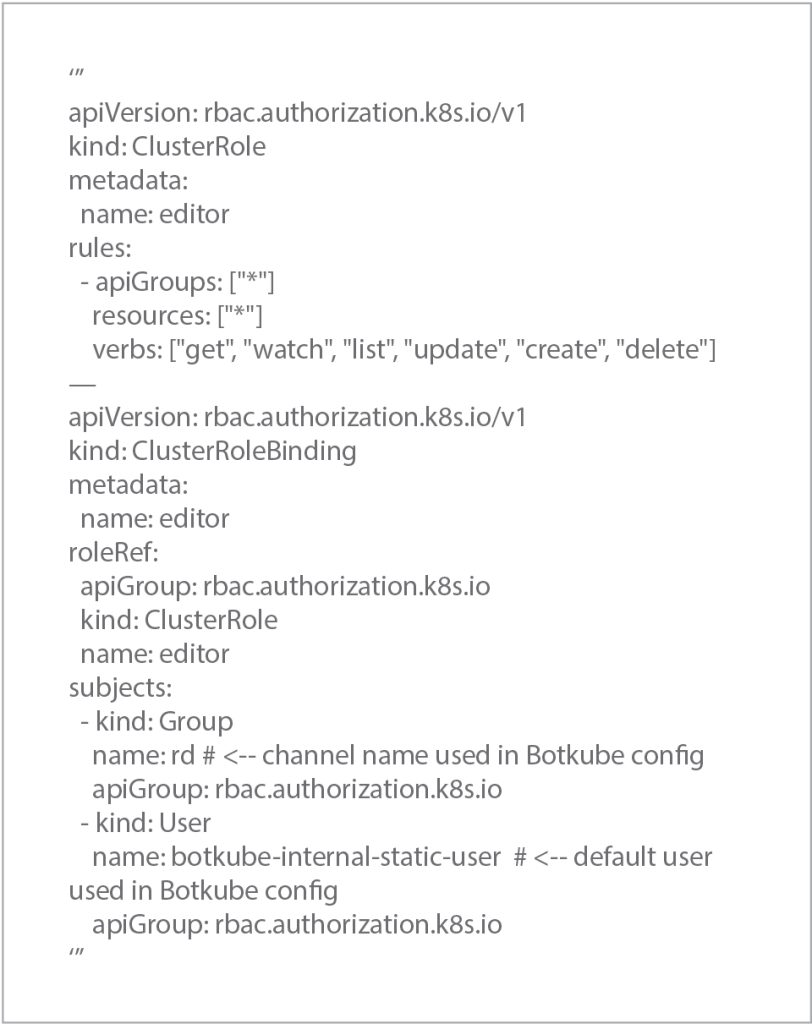
User Case 3: Actions Based on the Events
We can take some actions based on the events that happen at the cluster.
The example shown below describes the created resource if the operation is resource creation, else
lists the resources in the namespace for any other operation.
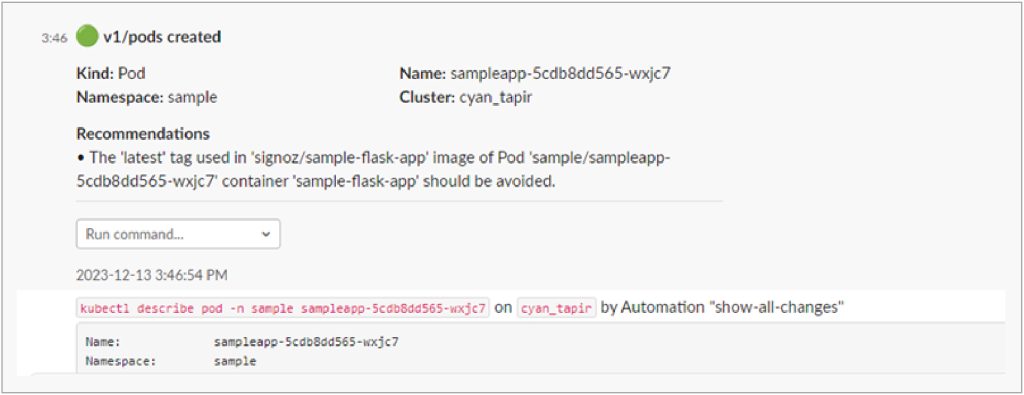
To achieve this, add below configuration in the actions sections
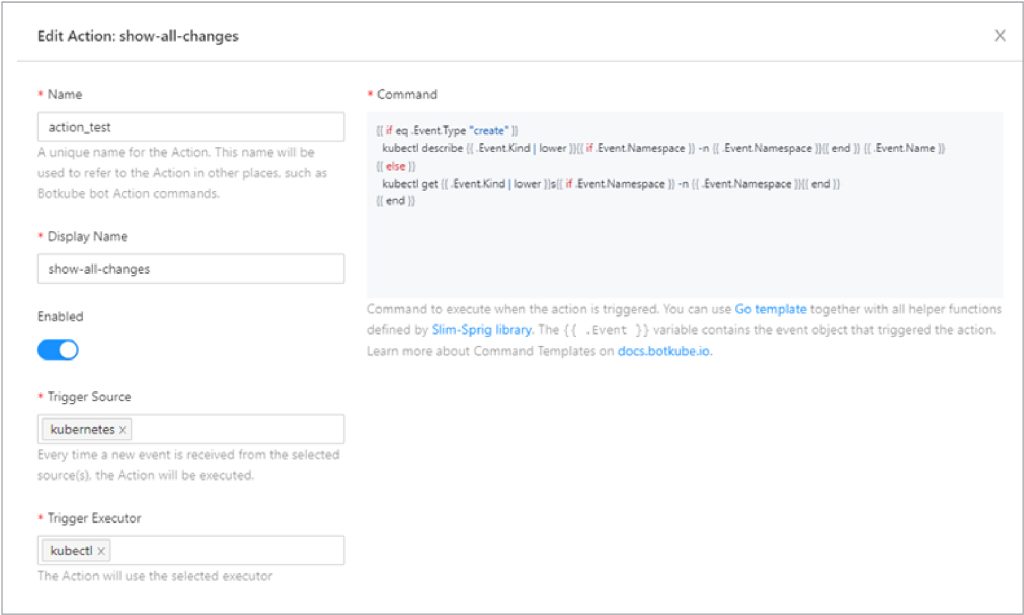
Note: Event Type for your operations can be known either in the cluster or we can print by adding ‘{{ printf “Type: %s” .Event.Type }}’ in the command section of the actions
In addition to above mentioned use cases, we can also configure Botkube to send notifications for events like resource limit violations, security and network policy violations, backup and restore, horizontal pod autoscaler custom event triggers etc.
Conclusion
Botkube stands out as an indispensable asset for efficient cluster management in the fast-paced world of container orchestration, where Kubernetes reigns supreme. This intelligent agent is designed to bridge the gap between your Kubernetes environment and communication channels, bringing a wealth of features to enhance monitoring, communication, and incident response.
Botkube is not just a monitoring tool; it offers a comprehensive solution for efficiently managing and controlling rollbacks. Its key features and functionalities open up a range of potential use cases for troubleshooting, resource monitoring, and incident response management, making it a valuable tool for enterprise teams.
References
Related Insights


Communication Networks: Compete or Cooperate?

Harnessing the Power of 5G with Cloud Native Foundation

Network Slicing: An Emerging Paradigm in 5G Service Guarantee

How Edge Computing is Revolutionizing the Telecom Industry

